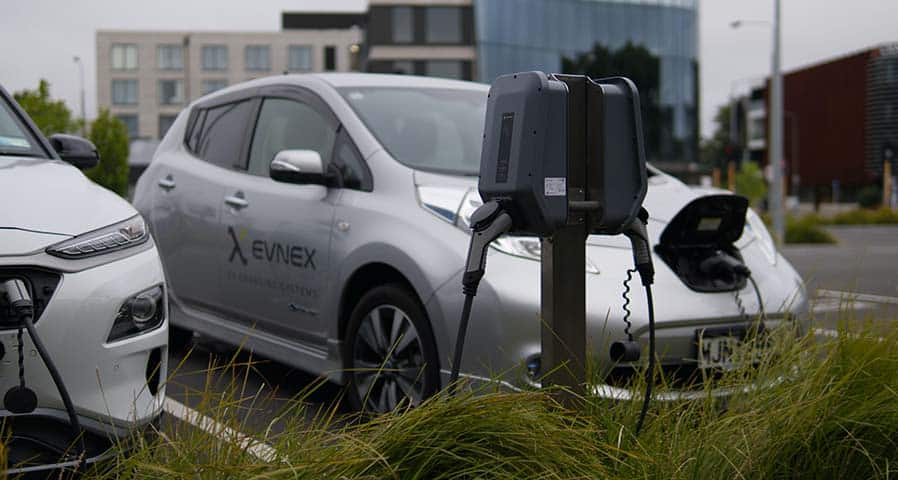Electric fleet owners need to charge their vehicles. Consumers also require public chargers for all-electric and plug-in hybrid vehicles. EV chargers for public use are a necessity, but the stations must be deployed and integrated in a way that meets community needs.
Public EV Charging Infrastructure
A lot of EV owners charge their vehicles at home, but it’s not always enough. Being limited to home EV charging can also turn some consumers away from transitioning to an electric vehicle. Public EV charging and workplace stations make owning an electric vehicle easier for consumers. Range anxiety is reduced, and owners of PHEVs are less likely to fill up on gas.
The type and location of public EV chargers need to be major considerations. Level 2 chargers should be deployed in areas where drivers are likely to park for long periods. These areas can include shopping centers, airports, hotels, government offices, and other businesses.
Level 3 DC fast chargers should also be installed in urban hubs and along highway corridors.
In our previous blogs on EV Infrastructure, you can learn about charging infrastructure development, operation, and maintenance. For more information about infrastructure costs and charging infrastructure development, refer to Costs Associated With Non-Residential Electric Vehicle Supply Equipment and EV charging infrastructure costs by the International Council on Clean Transportation.
Fleet Charging
Fleet owners and operators incorporating electric vehicles into their operations must consider several factors for their EV charging infrastructure. It includes,
- Peak demand
- duty cycles
- garaging locations
- vehicle models
- availability of off-site public charging stations
To determine the best charging solutions, fleet managers, utilities, and city planners can work together. Several utility providers have published fleet electrification guidance to help businesses make the transition to electric fleets. One example is Take Charge: A Guidebook to Fleet Electrification and Infrastructure from Pacific Gas and Electric.
EV Charger Parking Ordinances, Zoning, and Codes
Permits, zoning, codes, and EV charger parking ordinances are tools state and local officials are using to get communities ready for public stations. Each plays a different role in encouraging the adoption of public EV charging infrastructure.
- Zoning regulations will not restrict EV charger infrastructure. Instead, it can be used as a planning tool to meet charger installation requirements or to incentivize businesses to install public stations.
- Codes specify the requirements for new constructions. It can include requiring EV charging infrastructure or electrical conduits for future stations. The National Institute of Science and Technology (NIST) outlines guidelines for permitting and inspection protocols in Handbook 44 Device Code Requirements for Electric Vehicle Fueling.
If your jurisdiction does not have specific permitting requirements for EV charging infrastructure, additional information is available in the Transportation and Climate Initiative Georgetown Climate Center report, Creating EV-Ready Towns and Cities: A Guide to Planning and Policy Tools and EV-Ready Codes for the Built Environment.
EV Charger Infrastructure with Apogee Charging Solutions
Fleets, municipalities, and businesses can all work together to advance the electrification of their communities. Apogee Charging Solutions has experts dedicated to EV charging infrastructure and large project installations. To speak to one today call 484-816-2076, emailing [email protected], or schedule a call that fits your need by clicking the button below.








0 Comments